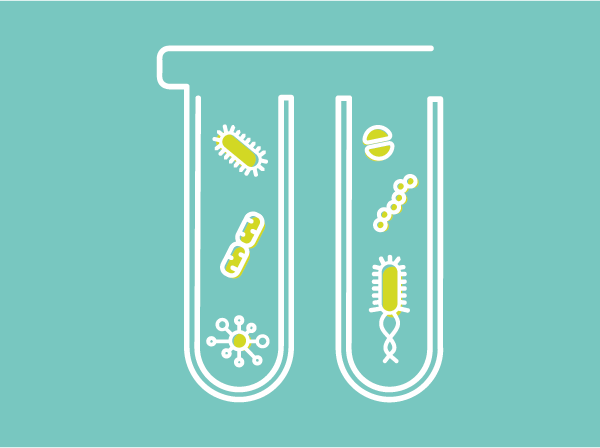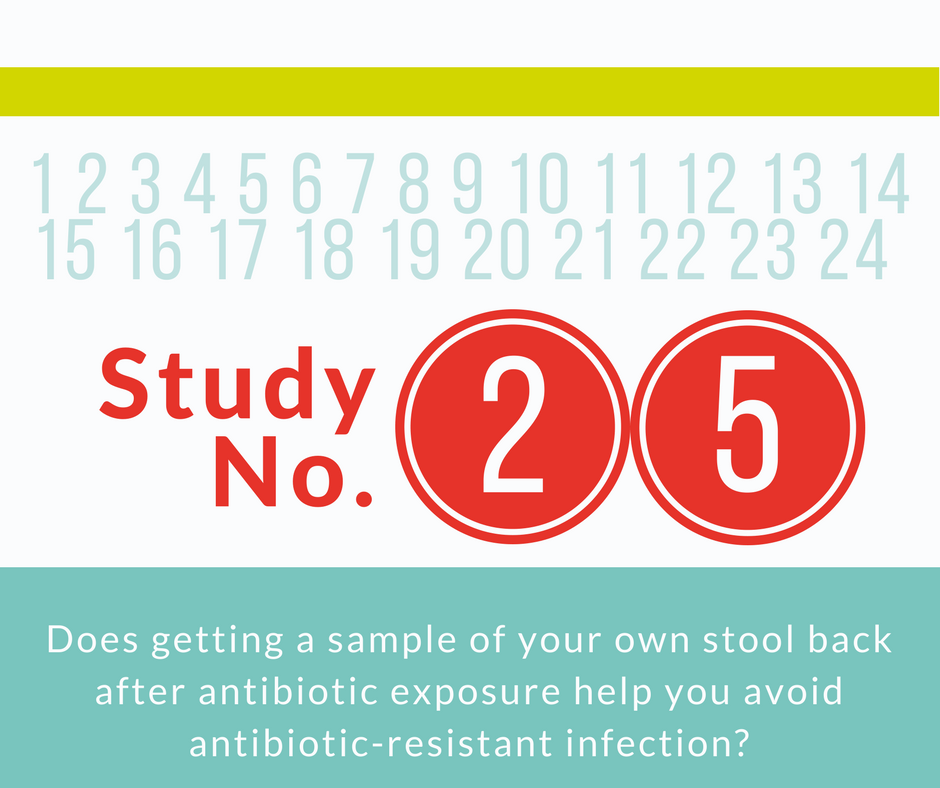CDC awards OpenBiome $1M in research contracts
Press Release
Share
Studies will explore use of fecal transplants to combat antibiotic resistance and prevent infection
Medford, MA — New studies at OpenBiome could reveal how to prevent dangerous antibiotic-resistant infections using human stool. The Centers for Disease Control and Prevention (CDC) announced today that it is awarding OpenBiome two contracts totaling $1,050,000 to study fecal microbiota transplants in treating vancomycin-resistant enterococcus (VRE) and to explore the use of autologous fecal transplants, in which a patient receives their own banked fecal material to prevent intestinal infections following antibiotic treatments.
“Antibiotics are life-saving medicines, but they also can disrupt a person’s microbiome and increase the risk for drug-resistant infections,” says Dr. Clifford McDonald, Associate Director of Science for CDC’s Division of Healthcare Quality Promotion. “To protect people, their microbiomes, and the effectiveness of antibiotics, these projects are an example of applied research that has the potential to produce innovative public health approaches to better combat antibiotic resistance.”
OpenBiome’s first study will test fecal microbiota transplant (FMT) effectiveness in treating VRE. More than 66,000 patients contract VRE infections each year in the U.S., resulting in 1300 deaths. VRE has been designated a “serious threat” by the CDC because these infections are difficult to treat and expensive to cure. Currently there are no alternative treatments for VRE once antibiotic therapies fail.
In vitro, animal studies, and retrospective analyses in FMT patients suggest that the therapy could serve as a way to eliminate VRE from patients’ intestinal tracts, helping them to avoid dangerous infections. FMT introduces bacteria into the gut that outcompete the harmful bacteria, essentially crowding them out. By comparison, FMT treatments with stool from healthy donors cure 80-90% of patients with antibiotic-resistant Clostridium difficile gut infections who have failed two or more rounds of antibiotic treatment.
OpenBiome’s second contract will fund a study of autologous (self) FMT treatment in preventing infection. Elderly residents of long-term care facilities are particularly vulnerable to antibiotic-resistant bacteria colonization and infection. On average 35% of nursing home residents will develop an infection requiring antibiotic treatment each year.
For this study, OpenBiome will collect stool samples from nursing home residents whose feces test negative for antibiotic-resistant bacteria. After these residents have completed a course of antibiotics, they will be given either FMT capsules filled with their own stool, or a placebo. They will then be evaluated for safety, gut microbial diversity, and prevention of colonization by antibiotic resistant bacteria. If the results are promising, OpenBiome will follow up with a larger trial of autologous FMT for preventing enteric (gut) antibiotic-resistant infections among high-risk patients.
“We’ve been fighting antibiotic resistance by developing increasingly toxic drugs, but we’re engaging in an evolutionary arms race with bacteria that we can’t win” says Mark Smith, President and Research Director of OpenBiome. “With these trials, we’ll explore whether we can use the protective community of bacteria found in a healthy gut do the work for us.”
The awards, made through CDC’s Broad Agency Announcement (BAA), support the CDC Antibiotic Resistance Solutions Initiative and help to advance the objectives articulated in the National Action Plan for Combating Antibiotic-Resistant Bacteria.
About OpenBiome:
OpenBiome is a nonprofit stool bank and research platform. We work collaboratively with clinicians, hospitals, and researchers to make fecal microbiota transplantation (FMT) safe and affordable for patients suffering from recurrent C. difficile infection and to explore FMT’s role in treating other diseases.
Before OpenBiome, the only way for patients to access the procedure safely was by finding their own donor who could pass an expensive panel of screens and a clinician willing to prepare and deliver the stool treatment. Many patients resorted to performing the procedure themselves at home, at the risk of contracting new infections. Since sending its first treatment in Oct 2013, OpenBiome has provided more than 16,000 treatments to clinicians at over 700 medical centers in every U.S. state and in 6 countries. OpenBiome is also supporting 13 actively enrolling clinical trials to explore the potential role for gut bacteria in improving human health.
Contact: media@openbiome.org
Twitter: @OpenBiome
Facebook: www.facebook.com/openbiome


